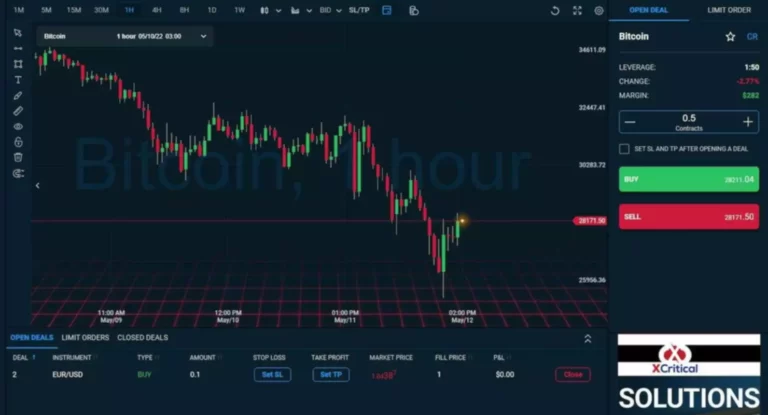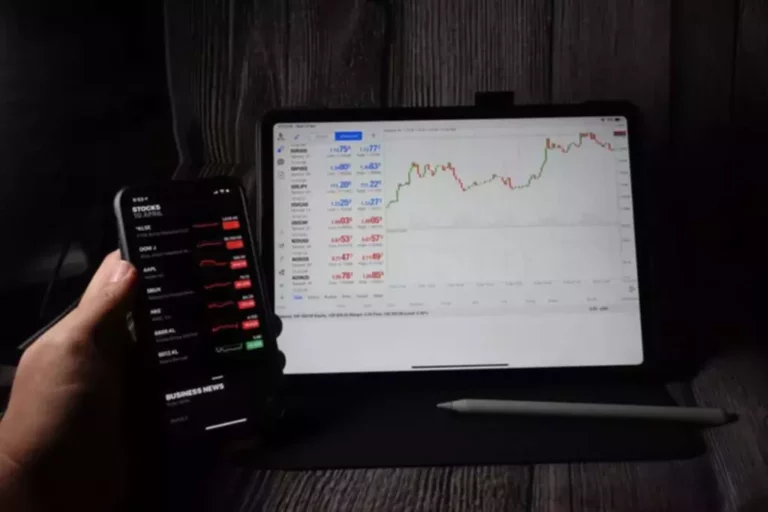Brokerage charges can consist of multiple parts, making them complicated for inexperienced investors. It’s important to grasp the varied types of brokerage fees that could be imposed. Some widespread examples embrace commerce execution charges, account maintenance fees, custodial charges, and advisory charges, to call a quantity of. At a full-service broker, you pay a premium for analysis, training, and recommendation.

Brokers typically present useful market research, investment advice, and buying and selling platforms. For these additional providers, some brokers could cost larger charges, balancing cost with the quality and vary of providers supplied to their shoppers. Brokerage charges in buying and selling are basically the price buyers pay for the comfort and expertise supplied by brokerage corporations. These charges can be a fixed charge per transaction or a share of the commerce worth, depending on the broker’s pricing structure. Brokerage within the stock market refers again to the payment charged by a brokerage agency for facilitating the shopping for and selling of economic securities, like stocks, on behalf of traders. This payment compensates the firm for its companies, experience, and use of its trading platform.
Discount Vs Full-service Brokers
Conversely, traders with lower exercise levels would possibly prefer a brokerage with lower mounted charges to attenuate their total prices. Understanding these nuances permits for a strategic strategy to investing that can enhance total returns. In trading, brokerage refers back to the charge or commission charged by a dealer for executing transactions, corresponding to shopping for or selling stocks, on behalf of shoppers. It’s the broker’s main source of revenue and varies based mostly on transaction type, volume, and brokerage firm insurance policies. Traditionally, most buyers and traders had to pay fees to their brokers to execute trades and maintain their accounts. Because discount brokers supply a narrower number of products and provide no investment recommendation, they charge lower fees than full-service brokers do.
In monetary providers, commissions are charged by brokers and monetary advisors for executing trades or providing investment recommendation. This charge construction aligns the broker’s or advisor’s pursuits with the client’s, as they earn more once they facilitate more transactions or manage bigger investment portfolios. Yes, some brokerage corporations offer commission-free buying and selling for sure kinds of belongings or accounts, significantly within the case of shares, ETFs, or mutual funds. Commission-free buying and selling has turn out to be increasingly common as brokerage firms compete to attract clients and differentiate their providers out there. Advanced buying and selling platforms with sophisticated options, superior charting instruments, and real-time market knowledge might come with larger fees or subscription costs.
These charges can embrace inactivity charges, account maintenance charges, fund charges, analysis fees, and AUM fees. As you begin working with a broker, ask for a whole list of their fees, including context on when every fee may be charged. Remember, the aim is to attenuate costs without compromising on the quality of service and the instruments essential for profitable investing. Understanding these charges is essential for traders, as they’ll erode investment returns over time.
Evaluating Brokerage Charges: Finding One Of The Best Deal
This fee is charged by brokers for executing transactions or offering specialised providers. Unlike commissions which would possibly be typically a percentage of the transaction value, brokerage charges can take a quantity of types and will not all the time be instantly linked to the transaction’s dimension. Some brokerage firms provide volume-based reductions to purchasers the place the commission per commerce decreases as the buying and selling volume increases. This incentivizes high-volume merchants to execute more trades and may find yourself in value financial savings for lively buyers. Volume-based reductions may be tiered, with different fee charges making use of to totally different levels of buying and selling quantity.

Her broker charges a 2.5% commission on the deal, so Susan pays $1,000 for the shares, plus $25. The dealer receives the order and if the brokerage has those shares out there, they’ll most likely fill Amy’s order instantly. If it doesn’t, it might purchase these shares on the exchanges or from different brokerages. They might not place the order in the quantity of 10,000, grabbing as an alternative 500 to 1,000 shares at a time to ship to Amy after the funds settle.
Distinction Between Fee And Brokerage
Brokerage fees, also known as dealer fees, are based mostly on a percentage of the transaction, as a flat charge, or as a hybrid of the two. For example, as mentioned above, they’ll charge per transaction (i.e. $x per transaction). They also can charge annual charges of x% based mostly on the value of the portfolio. A skilled advisor has a fiduciary responsibility to supply the investments that greatest serve the client’s interests. That said, a commission-based advisor could attempt to steer purchasers toward funding products that pay generous commissions as opposed to those that truly profit the shopper. There’s several key gadgets which will have an effect on what brokerage fees are charged.
- A dealer is an individual or firm that arranges transactions between a purchaser and a seller for a fee when the deal is executed.
- There are necessary differences between commissions and costs, at least in the greatest way these words are used to explain professional advisors in the financial providers business.
- Click on the supplied link to learn concerning the process for submitting a criticism on the ODR platform for resolving investor grievances.
- A professional advisor has a fiduciary duty to offer the investments that finest serve the client’s interests.
An increasing variety of brokers provide fee-based investment products, corresponding to managed funding accounts. As nicely as executing client orders, brokers may present buyers with analysis, funding plans, and market intelligence. Full-service brokers supply a extensive broker fees range of services and products similar to property planning, tax consultation and preparation, and different financial services. Not so long ago, it was not uncommon for a full-service broker to cost upward of $100 per commerce for orders placed with a human broker.
Understanding Commissions
Brokers can physically present trades but as a rule, they monitor trades from their computers and are solely wanted to intervene within the case of an exceptionally giant or unique commerce. Securities brokers register with the Financial Industry Regulatory Authority (FINRA), the broker-dealers’ self-regulatory physique. In serving their clients, brokers are held to a standard of conduct based mostly on the “suitability rule,” which requires there be reasonable grounds for recommending a selected product or funding. Just write the bank account quantity and signal within the software kind to authorise your financial institution to make cost in case of allotment.
An instance of this would be if a high-net-worth investor named Amy needed to put a big buy order for Tesla Inc. (TSLA) inventory. Amy would call or message her dealer, telling them to execute the purchase order of, say, 10,000 shares. This is an order of more than $1 million, so Amy feels more comfy having a dealer execute the trade immediately. Examples of a full-service dealer would possibly include choices from a company such as Morgan Stanley, Goldman Sachs, or Bank of America Merrill Lynch. The main https://www.xcritical.in/ distinction is that a Demat account holds securities like shares and bonds in digital kind, while a brokerage account is used to purchase and promote these securities within the stock market. Fees for money management have also been compressed through online providers referred to as roboadvisors, which use algorithms to mechanically establish and keep an optimum funding portfolio.
Evaluating Brokerage Fees And Commissions
In the financial securities trade, a brokerage fee is charged to facilitate buying and selling or to manage investment or different accounts. The three primary kinds of brokers that charge brokerage fees are full-service, discount, and on-line. A brokerage payment is a charge or fee a dealer expenses to execute transactions or present specialized services on behalf of shoppers.

Alice is a day trader who makes a number of trades a day, whereas Bob is a long-term investor who makes a quantity of trades a 12 months. Alice would possibly opt for a brokerage that gives lower commissions, even if it means paying a better monthly fee, as this would minimize back her total prices. Conversely, Bob would possibly choose a brokerage with greater commissions but no month-to-month charges, as this would be less expensive for his investment type.
What’s The Difference Between Brokerage And Commission?
In the world of investing and trading, understanding the distinction between brokerage charges and commissions is essential. These two phrases are sometimes used interchangeably, but they actually discuss with distinct charges that can significantly affect your investment returns. In this article, we will explore the distinction between brokerage fees and commissions, demystify brokerage charges, and assist you to decide which choice is right for you. Additionally, we’ll present some tips about evaluating brokerage fees to search out the best deal on your investing needs. The bigger brokerage companies have a tendency to carry an inventory of shares out there on the market to their prospects.
Generally talking, the extra crucial ones are listed under, although this list isn’t meant to be exhaustive of all factors. Today, most online brokers no longer charge fee for purchasing and promoting stocks. A fee is a service charge assessed by a broker or investment advisor for providing investment recommendation or handling purchases and gross sales of securities for a consumer. Alice Blue’s brokerage presents a flat payment of ₹15 or zero.05% per executed order for equity intraday, futures, and forex futures on NSE and BSE. Options and foreign money choices incur a ₹15 charge per order, equity supply is free. Brokerage fees are common in numerous elements of the financial business, including banking, investing, insurance coverage, supply companies, and actual property.
最近のコメント